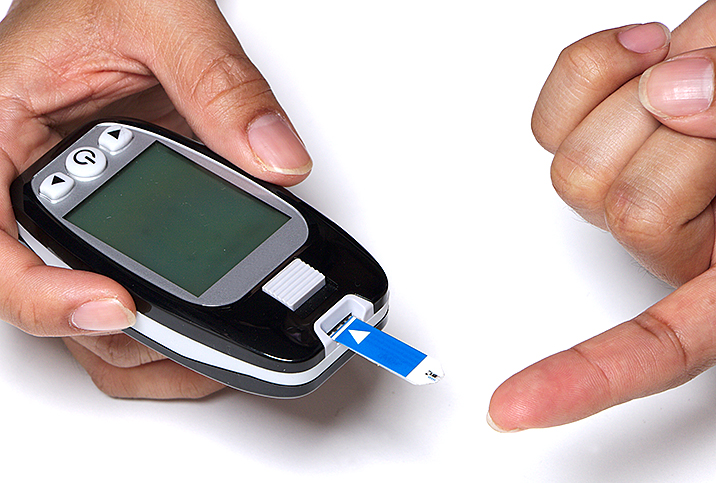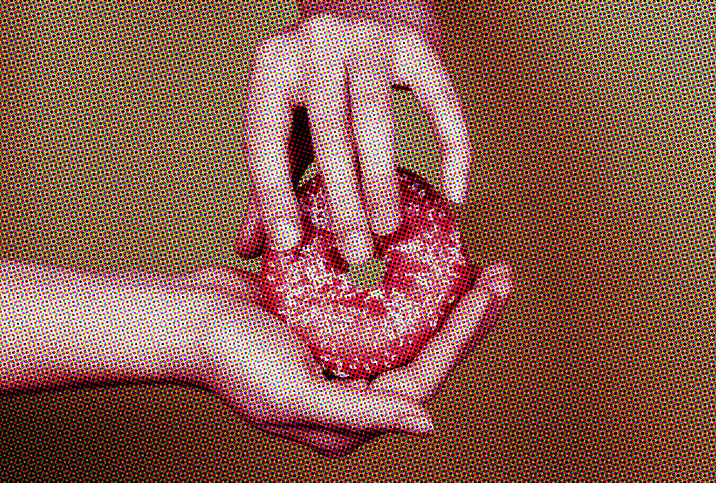How to Get Diabetes and ED Under Control

The correlation between erectile dysfunction (ED) and diabetes is well documented. They're two distinct conditions, it's true, but men who have diabetes are two to three times more likely to get ED.
Several other health risks and conditions that impact erectile dysfunction are also correlated with type 2 diabetes. For instance, men who are overweight, sedentary, have poorly managed blood sugar or eat a poor diet are candidates for both type 2 diabetes and ED.
Why are men with diabetes at risk for ED?
Diabetes affects blood flow and the nervous system. When your circulation is less than ideal, which often develops as a result of unbalanced blood sugar levels, the result can be damage to small blood vessels and nerves.
If blood vessels are not correctly moving blood to the penis, you will experience difficulty getting and maintaining an erection. Plus, nerve damage can affect how your body responds to sexual cues.
How to manage diabetes for sexual health
Fortunately, several approaches can help men cope with the worst effects of diabetes and help with ED in the process. One study from 2014 showed that making positive lifestyle changes allows men with diabetes to markedly improve their sexual health and enjoy an improvement in the quality and frequency of their erections.
Four of the most common improvement suggestions happen to be among the easiest for men to control.
Check your blood sugar more often
Studies suggest that for most people living with diabetes, having a set schedule to check blood sugar levels works best. However, in addition to sticking to a routine, introducing additional "random" spot checks can help diabetics to better regulate blood sugar levels.
The idea is that people tend to be better behaved when they know any sort of test is coming up. So, try rotating in extra checks at various meal times throughout the week, for instance. These off-the-cuff tests may give you a more accurate estimate of your blood sugar levels.
Watch your carbs
Carbohydrates are converted into sugar in your body, so they can spike your blood sugar. Eating starchy foods, even if they aren’t sweetened, can cause severe fluctuations.
Make sure you limit your carb intake and pair carbs with high-fiber foods and proteins as well. Whole, fibrous foods, unlike carbs, stick with you and can help steady those blood sugar variations.
Another study showed that even moderately restricted carbohydrates, such as those in a Mediterranean-style diet—say, 100 to 150 grams of carbs per day, making up 20 to 35 percent of your total caloric intake—resulted in a significant reduction in hemoglobin A1c (HbA1c), an important measure of blood sugar.
Giddy Clinical Nutritionist Lahana Vigliano explains what your plate should look like to optimize your diet. Click here to watch the video.
Get moving
Exercise is essential for people with diabetes and for men with erectile dysfunction. Even moderate exercise almost immediately lowers your blood sugar and boosts endorphins, which help with your overall mood and sense of well-being. If you don’t particularly enjoy exercising, think of it as medicine to treat your diabetes and ED. That can be a better motivator.
The recommended amount of exercise for most people is 30 minutes, five days a week, or a total of 150 minutes, but even going for a moderately brisk walk a few times a week can make a difference.
Check with your doctor before starting an exercise program, and be sure to set realistic, achievable goals to avoid getting discouraged. An exercise diary is a great way to track your progress and stay motivated.
Eliminate fast food
It’s no shock that giving up or at least slashing your intake of fast food is encouraged by doctors, especially if you want to be careful with your diabetes and ED risks.
Even if you trust the nutrition fact sheets that fast-food places publish, and even if you limit yourself to the occasional fast food “cheat day,” the sodium, hidden sugars, fat, carbs and bad cholesterol that come with fast food just aren’t worth it.
As if that isn’t enough, the salt content alone in fast food should be sufficient to deter you. Studies show that people with type 2 diabetes have a higher risk of developing cardiovascular disease and chronic kidney disease, both of which are exacerbated by high sodium intake.
If you need help handling your ED while addressing the root of your diabetes, a product like Eddie by Giddy® can help to make the transition a little smoother. As an FDA-registered Class II erectile dysfunction device, it optimizes blood flow for healthier erections without adding in side effects from another set of pills or ED medications.
The challenges of erectile dysfunction and diabetes are just that: challenges. If you're ready to step up and face them, you can reduce the effects they have on your life—starting today.

















